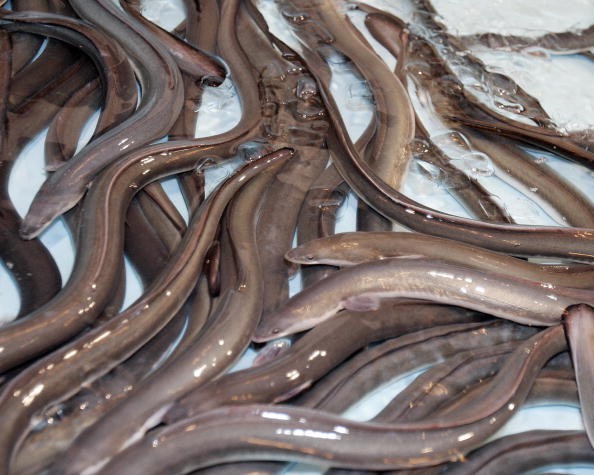Scientists have discovered what they referred to as environmentally damaging levels of illicit drugs in the river moving through Glastonbury festival due to public urination on the area.

Drug Levels in River Whitelake
Researchers took measurements of levels of illegal drugs in the river prior, during, and following the Glastonbury festival that took place in 2019 and then compared levels upstream and downstream of the event.
Following the 2019 festival, River Whitelake contained high drug levels which is enough to cause harm to aquatic wildlife as well as a rare eel population, as per the report.
It was discovered that in the weeks following the festival, the quantity of MDMA was 104 times higher downstream than upstream and has increased to levels that could cause harm to the life cycle of a protected species called European eels.
It was discovered that cocaine concentration was 40 times greater downstream, despite the fact that the levels of cocaine were not regarded as harmful to aquatic creatures.
Effect of Illicit Drugs on Wildlife
Past research has revealed that traces of cocaine in rivers can make eels hyperactive and they might also experience hormonal changes, muscle wastage, and impaired gills.
"Illicit drug contamination from public urination happens at every music festival. Unfortunately, Glastonbury festival's close proximity to a river results in any drugs released by festival attendees having little time to degrade in the soil before entering the fragile freshwater ecosystem," Dan Aberg from the School of Natural Sciences in Bangor University said.
A spokesperson for Glastonbury festival said that safeguarding wildlife and streams was of great importance to the festival and that they would love to work with the researchers so they can understand their outcomes and suggestions.
The spokesperson also said that they have a thorough and victorious waterways sampling regime in order amid every festival, as accepted by the Environment Agency. The Environment Agency didn't raise any after Glastonbury 2019.

Public Urination
Prior to the festival of that year, Glastonbury's organizers began a campaign, Don't Pee on the Land, in order to make known the environmental damage which public urination on Worthy farms causes.
In June 2019, they tweeted: "Peeing on the land at Glastonbury causes pollution of the water table, which can affect local wildlife and fish. The Environment Agency has the power to close the site if there is too much pollution. Please only pee in the hundreds of toilets and urinals on site."
Public urination was described as the greatest threat to waterways and animals for which they provide a home in response to the new research. Glastonbury's spokesperson made this description.
They said the campaign - Don't Pee on the Land - had recorded "measurable success" and that they would keep discouraging the practice. They added saying they do not allow the use of illicit drugs at Glastonbury.
The researchers observed a river close by called Redlake, which does not cross the festival area. It experienced "no significant changes in any illicit drug levels, further confirming that drug release was likely dependent on the festival site".
Related Ariticle : US Marijuana Use Up, Cocaine Use Down, Americans Spend $100 Billion Annually on Illegal Drugs
For more news, updates about pollution and similar topics don't forget to follow Nature World News!
© 2025 NatureWorldNews.com All rights reserved. Do not reproduce without permission.





